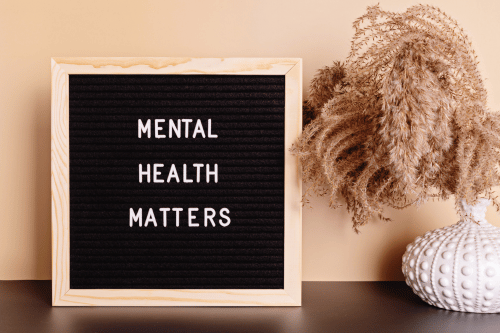Facts About Teen Mental Health
Teen mental health is a public health priority. According to the Centers for Disease Control and Prevention, mental health disorders affect about 20% of teens yearly. Many experience a depressive episode,anxiety disorders, or behavioral disorders that interfere with daily life. These mental illnesses often go untreated, affecting both emotional health and physical health.
Common Mental Health Disorders in Teens

Emotional Disorders
Emotional disorders like major depression, Generalized Anxiety Disorder, and bipolar disorder are common in teens. These mental health conditions cause ongoing sadness, excessive worry, and changes in behavior. Teens may feel hopeless or detached from daily life, sometimes forming a suicide plan without clear warning signs.
Behavioral Disorders
Attention-deficit/hyperactivity disorder (ADHD) and defiant disorder are types of behavioral health conditions. These mental disorders can cause educational difficulties, excessive activity, and trouble following rules. Many teens with attention deficit hyperactivity disorder also experience emotional difficulties or substance use disorder.
Eating Disorders
Anorexia nervosa and bulimia nervosa are eating-related mental health issues. Teens with these disorders have harmful thoughts about body image. These conditions can have a negative impact on both mental and physical health and may lead to disability among adolescents if not treated.
Determinants of Teen Mental Health
Social Experiences
Family life, life experiences, and experiences in childhood affect a teen’s mental health. Abuse in childhood, child welfare involvement, and lack of supportive environments increase the risk of mental health concerns. Peer relationships and the social environment also play a major role in shaping the emotional health of teens.
Academic Pressures
High academic expectations can harm adolescent development. Stress from tests, homework, and college planning may trigger mental illness or worsen mental health symptoms. The health of adolescents depends on balanced workloads and strong support systems in health in schools.
Exposure to Risky Behaviors
Harmful substance use, early sexual activity, and reckless behavior raise the risk of mental health challenges. Teens engaging in substance abuse often struggle with mental health disorders, especially when lacking healthy coping skills and interpersonal skills.

Impact of Social Media on Teen Mental Health
Social media can have negative effects on teen self-esteem. Constant comparison and exposure to unrealistic standards can lead to feelings of sadness, psychological illness, and mental health crisis. Cyberbullying also adds pressure, increasing the rate of suicide death and damaging mental well-being.
The Role of Sleep Deprivation
Lack of sleep affects the teen brain. Sleep deprivation lowers focus and mood and contributes to mental health disorder development. Ongoing poor sleep is linked to depressive disorder, anxiety disorders, and increased suicide rate in children ages 13–19.
Consequences of Untreated Mental Health Issues
Risk of Suicide
Suicide is a leading cause of death in adolescents. According to the National Vital Statistics System, many who die by suicide had untreated mental health conditions. Warning signs include withdrawal, aggression, or talk of death. Access to the 988 Suicide and Crisis Lifeline is essential for prevention.
Academic and Social Challenges
Untreated mental health challenges affect school and relationships. Teens may fail classes, lose friends, or isolate themselves. The Committee on Adolescent Health Care Services urges early support to avoid long-term negative impact on healthy development.
Importance of Early Detection and Intervention
Identifying symptoms early can prevent worsening mental illnesses. A mental health professional or health care provider can assess and recommend proper mental health treatment. Early action improves mental health outcomes and supports mental well-being.
Strategies for Promoting Teen Mental Health
Comprehensive Care Coordination
Comprehensive care coordination includes collaboration between families, schools, and healthcare providers. Services like family therapy, outpatient mental health programs, and school-based support help manage mental health concerns.
Evidence-Based Support Systems
Evidence-based therapies like CBT and DBT address mental health symptoms in teens. These non-pharmacological approaches teach healthy coping skills, regulate emotions, and improve behavior. Programs funded by the Health Resources and Services Administration help expand access to care.
Debunking Mental Health Myths
- Myth: Mental illness is rare in teens.
Fact: Millions of teens live with mental health conditions. - Myth: Teens will grow out of it.
Fact: Many mental disorders need treatment and support. - Myth: Talking about mental health encourages bad behavior.
Fact: Open discussion reduces stigma and helps identify mental health crisis situations.
Fostering Open Conversations About Mental Health
Creating supportive environments helps teens express their feelings. Schools and families should promote open, honest talk about mental health topics. Resources from Mental Health America and Charlie Health provide tools for talking to troubled teens about emotional struggles.
Role of Organizations in Teen Mental Health
WHO and Global Awareness Campaigns
The World Health Organization (WHO) and the U.S. Department of Health and Human Services run campaigns to raise awareness of mental health statistics and improve access to mental health services for youth. These efforts help normalize seeking help.
Integrating Mental Health into Broader Health Policies
Government agencies like the Department of Health and Human Services promote inclusion of mental health services in broader health systems. Policies must focus on both mental and physical health, especially during the COVID-19 public health emergency and beyond.










